Expert Profiles
Jeffrey Catchmark
Professor, Pennsylvania State University
Topic areas:
Biomaterials, Nanotechnology, Biological Engineering Education
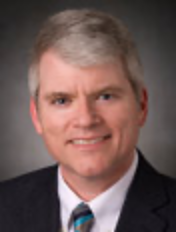
Background:
I have a B.S. and Ph.D. In Electrical Engineering and worked as an Electrical Engineer in industry for nearly 9 years before joining Penn State University in 2000. A few years after joining Penn State I made a career change and began conducting research on sustainable biologically derived materials. Specifically I study cellulose and cellulose composites containing other polysaccharides or proteins to create sustainable materials to replace synthetics like plastic. I also teach 3 classes: Structural Systems in Agriculture, Biological Engineering Design, and Human Behavior in Management and Technology. I consider myself a biological engineer and love being a researcher and teacher in a field so important to sustaining our world and the diverse life it supports!
Mark Haidekker
Professor, University of Georgia
Topic areas:
Biomedical, Electronics, Imaging
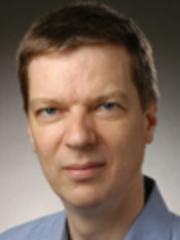
Background:
Mark Haidekker earned a MS degree in electrical engineering and a Ph.D. in computer science. He worked at the University of California, San Diego as Postdoc and joined the University of Missouri faculty in 2002 as assistant professor, from where he moved to the University of Georgia (UGA) in 2007. He is now a professor at the new College of Engineering at UGA, where he teaches, among other classes, linear systems, feedback controls, and biomedical imaging.
His expertise is in biomedical imaging, sensing, and instrumentation with a research focus on fluorescent environment-sensitive probes, and, more recently, x-ray-based examination of specialty crops. The design of specialized instrumentation is fundamental to his research, and recently built a high-resolution x-ray scanner and a dual-energy x-ray computed tomography scanner.
Eric S. McLamore
Assistant Professor, University of Florida
Topic areas:
Biosensors, Nanomaterials, Mass Transport, Cell Biologyn
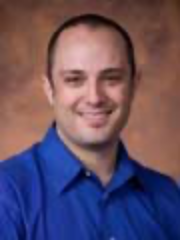
Background:
I have a B.S., M.S., and Ph.D. in Civil Engineering with a focus in bioenvironmental engineering. I was a member of the Advanced Life Support (ALS) and Environmental Control and Life Support Systems (ECLSS) NASA projects from 2000-2008. The ALS and ECLSS research focused on development of a closed loop life support system for long duration space exploration. My specific research focused on bioregenerative systems and biosensors.
After completing my PhD, I was a Post Doctoral Fellow in Agricultural & Bioengineering at Purdue before joining the faculty at the University of Florida. My lab now focuses on engineering nano-biosensors for measuring a wide range of targets, including viruses, small molecules, proteins, and whole cells. We apply these sensors in a variety of agricultural, environmental, and medical applications. I also teach 3 classes: Fundamentals & Applications of Biosensors, Biological Engineering Capstone Senior Design, and Grant Writing. In addition to research and teaching, I am actively involved in the UF ArtScience community and I have an active program called SARP (student artists in residence program) where we collaborate with artists to explore the creative nature of biological engineering.
Mark Riley
Professor and Department Head, Biological Systems Engineering, University of Nebraska-Lincoln
Topic areas:
Bioprocessing, Cell Culture, Biosensors, Enzymatic Processing
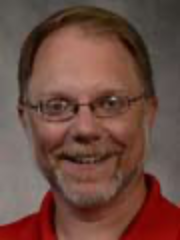
Background:
My backgrounding includes BS, MS, and PhD degrees in biochemical Engineering including a post-doctoral program in analytical chemistry. I was on the faculty for 15 years and then department head for 3 at the University of Arizona. I have been professor and department head in Biological Systems Engineering at the University of Nebraska-Lincoln since 2012. My research and teaching have focused on bioprocess engineering in a variety of areas ranging from the development of cell-based biological sensing to detect pathogens and environmental hazards, to production of biodiesel from waste cooking oil. I have developed sensors for process monitoring and water quality assessment. Measurements using light have been a large part of my research. My teaching has included bioprocess and bioreactor engineering, cell and tissue engineering, and simulations.
Ben J. Stuart
Professor of Civil Engineering, Ohio University
Topic areas:
Biofuels, Nutrient Cycling from Waste Organics, Algae Cultivation and Processing
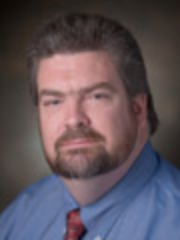
Background:
I received my B.S., M.S., and Ph.D. in Chemical and Biochemical Engineering from Rutgers, the State University of New Jersey where I worked in the Hazardous Waste Management Research Group. Upon graduation, I accepted a joint appointment between the departments of civil engineering and chemical Engineering at Ohio University, focusing on using sustainability as a bridge between those disciplines. After students asked me to teach a course on converting the waste cooking grease from campus dining halls into biodiesel (which I gladly used in my own personal vehicle for several years), I was drawn into the biodiesel feedstock research area.
Specifically, for the past ten years I have studied the cultivation and processing of algae biomass for meeting energy demands through novel photobioreactor design and operation, algae harvesting and dewatering technologies, lipid identification and extraction, and direct biomass conversion to bio-oils. My current research efforts investigate biogas generation from anaerobic digestion of the organic fraction of municipal waste streams, and subsequent nutrient cycling through the generation of food and algal biomass.
Jeong-Yeol Yoon
Associate Professor, The University of Arizona
Topic areas:
Biosensors, Food Safety, Medical Diagnostics, Biomaterials
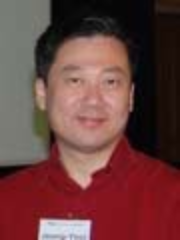
Background:
I received his B.S./M.S./Ph.D. degrees in Chemical Engineering at Yonsei University and my second Ph.D. in Biomedical Engineering at UCLA. I joined Department of Agricultural and Biosystems Engineering faculty at the University of Arizona in 2004 and holds joint appointments in School of Animal and Comparative Biomedical Sciences, Department of Biomedical Engineering and BIO5 Institute at the University of Arizona. I have been active in Institute of Biological Engineering (IBE), am serving as President-Elect (2014), President (2015), Immediate Past President (2016), as well as Editor-in-Chief for Journal of Biological Engineering (the official journal of IBE). My lab is conducting research on several different microfluidic applications towards food, water and medical applications. More information can be found at http://biosensors.abe.arizona.edu.
